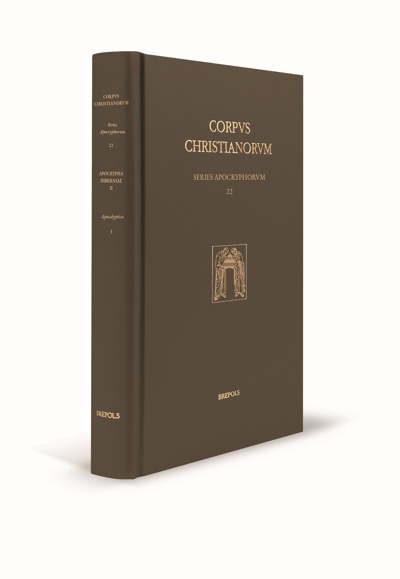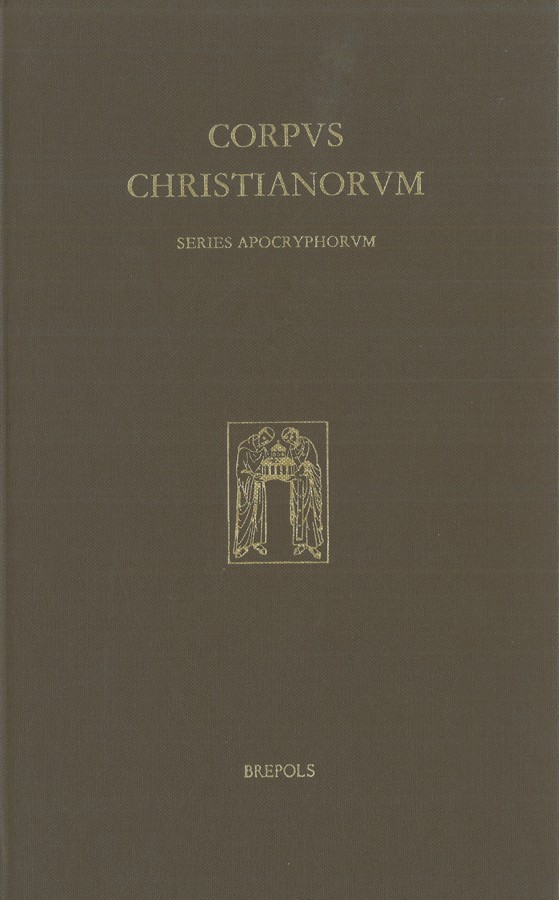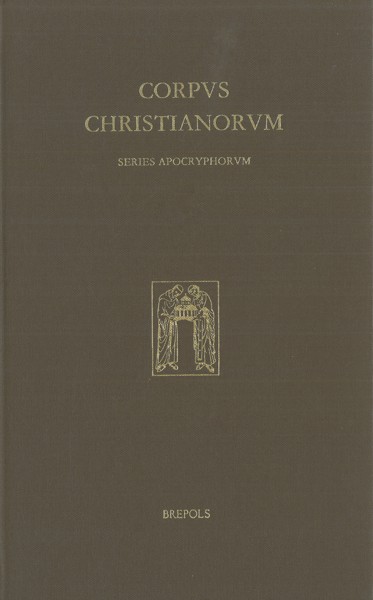
Apocrypha Hiberniae I, 1: Euangelia infantiae
M. McNamara, C. Breatnach, J. Carey, J.-D. Kaestli, B. O'Cuiv, M. Herbert, P. O'Fiannachta, D. O'Laoghaire, R. Beyers (eds)
- Pages: xvi + 487 p.
- Size:155 x 245 mm
- Language(s):English
- Publication Year:2002
- € 275,00 EXCL. VAT RETAIL PRICE
- ISBN: 978-2-503-41131-6
- Hardback
- Available
"The editorial team has given us in these volumes a splendid instrument de travail which will be of service not merely to those interested in the history of the apocryphal tradition, but also to students of Medieval Irish literature and religion. (...) The editorial work is of the usual high standard one has come to expect from the Corpus Christianorum series. (...) this volume provides rich resources for anyone who wishes to take them further." (B. McConvery in Irish Theological Quarterly, 70 (2005), p. 86-89)
"By any standards, this publication is an extraordinary achievement, that redounds to the credit of M. McNamara, aided and abetted by his team of expert editors and biblical scholars." (P. Ó Riain in Zeitschrift für celtische Philologie, Band 55, p. 275-276)
In 1927 M. R. James published Latin Infancy Gospels, identified by him in two related but not identical manuscripts (one the British Library Arundel 404; the other from Hereford), together with a parallel text from the Irish manuscript known as the Leabhar Breac. Later researches brought to light more manuscripts of this Latin work, and also of the Irish text. James recognized that his apocryphal Latin Infancy text was compiled from a combination of the Protevangelium of James and a hitherto unknown text which he named "The Source". Recent research has identified a full Latin translation of the Protevangelium of James. A hitherto unrecognized Irish Infancy Narrative has also been identified in the Dublin manuscript known as the Liber Flavus Fergusiorum. A deep study of this related tradition was called for. This has been carried out over the past ten years by an Irish team in conjunction with Professor Daniel Kaestli and AELAC. The fruits of this labour are published in these two volumes.
Volume 13 has a general introduction with a historical sketch of New Testament apocrypha in Ireland and a history of research on the subject. This is followed by a comparison of the Infancy Narratives in the Leabhar Breac and the Liber Flavus Fergusiorum. There are special introductions to these Infancy texts, followed by critical editions of the Irish texts, accompanied by English translations and rich annotation. Next there is similar treatment of the Irish versified Narrative (from ca. 700) of the Childhood Deeds of Jesus (commonly known as the Infancy Narrative (or Gospel) of Thomas. There is then (in volume 14, but with continuous pagination) the edition and translation of an Irish thirteenth-century poem with elements from Infancy Narratives, and both Latin and Irish texts on the wonders at Christ's birth, accompanied by translations and notes. The edition of the Irish material is followed by a critical edition of the full Arundel and Hereford forms of the Infancy Narrative (here referred to as the "J Compilation"), together with a detailed study of all the questions relating to this work. The volume concludes with a critical edition (by Rita Beyers) of the Latin text of the Protevangelium of James, accompanied by a detailed study of the work..
The work contains a detailed study of the Latin translations of the Protevangelium of James and the transmission of this work in the West. The "J Compilation" (a combination of the Protevangelium and texts of Pseudo-Matthew) can be traced back in manuscript transmission to ca. 800, and must have originated some time earlier. Behind it stands an earlier "I ("I" for Irish) Compilation" without influence from Pseudo-Matthew, the form found in the Irish witnesses. It is argued that M. R. James's "Source" may be of Judaeo-Christian origin and may really be the Gospel of the Nazoreans. Among the indexes there is a list of all the Irish words found in the texts.
This edition of the Irish and related Latin texts is a major contribution to the study of the apocryphal Infancy Narratives. It should also be of particular interest to Celtic scholars, to students of Irish ecclesiastical learning, and in general to all medievalists.





